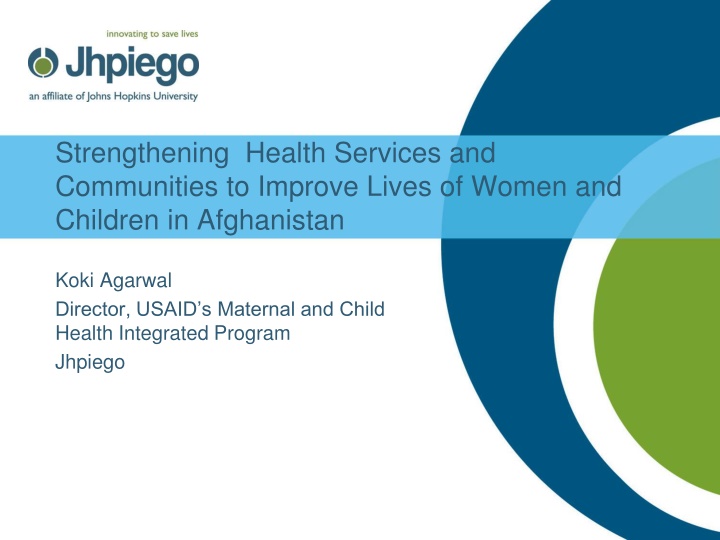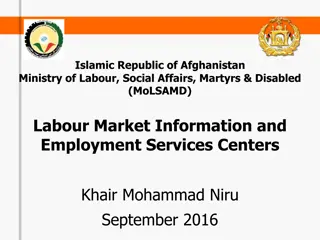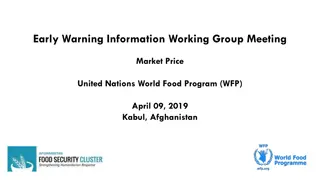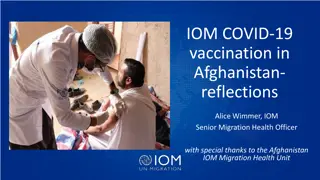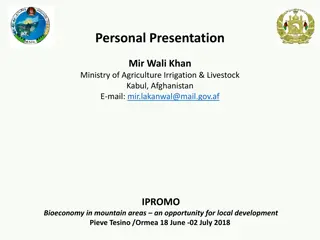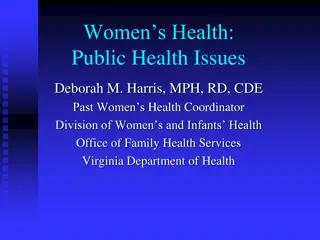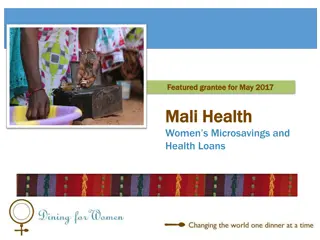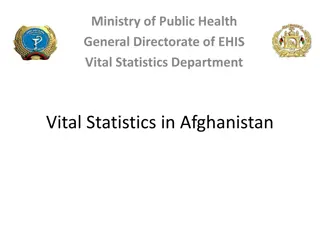Strengthening Health Services for Women and Children in Afghanistan
This story highlights the transformation in Afghanistan's healthcare system, focusing on improving maternal and child health. Through initiatives like training midwives, developing policies, and enhancing community engagement, the project led to a significant increase in the coverage of essential health services. The project's impact is seen in the rise of skilled attendants at births and the adoption of national standards for maternal and newborn health strategies.
Download Presentation

Please find below an Image/Link to download the presentation.
The content on the website is provided AS IS for your information and personal use only. It may not be sold, licensed, or shared on other websites without obtaining consent from the author.If you encounter any issues during the download, it is possible that the publisher has removed the file from their server.
You are allowed to download the files provided on this website for personal or commercial use, subject to the condition that they are used lawfully. All files are the property of their respective owners.
The content on the website is provided AS IS for your information and personal use only. It may not be sold, licensed, or shared on other websites without obtaining consent from the author.
E N D
Presentation Transcript
Strengthening Health Services and Communities to Improve Lives of Women and Children in Afghanistan Koki Agarwal Director, USAID s Maternal and Child Health Integrated Program Jhpiego
Afghanistan in 2002 Country with the second highest maternal death ratio in the world 1,600 per 100,000 live births There were only 467 midwives for a country with a population of 21 million No health policies, guidelines and training for several years No community engagement or ownership of health programs
The Response Strengthened health system with USAID-funding Supported Ministry of Health to set a new standard: Revised and improved guidelines, policies and training Built a community response to maternal deaths Provided basic package of integrated services at the primary care level through NGOs Increased significantly coverage of midwifery services across country and use of skilled attendants at births, from 8% to 19% in just four years 4
The Health Services Support Project Founded on the following principles: Encouraging local ownership of health care delivery and an investment in country- led plans Developing the ability of local NGOs, the Afghan Midwives Association and other Afghan organizations to deliver and support quality health care services
The Health Services Support Project Building the capacity of the MoH to develop and implement policies and standards Strengthening health care systems: trained health worker has skills, incentives, equipment to deliver the care people need Women- and girl-centered approach to benefit families and communities
Results: A Multiplier Effect Jhpiego assisted the Ministry of Public Health in adapting maternal and newborn health strategies for its use (community-based approaches, PPFP, Midwifery education, Quality Assurance Stds). The MoPH adopted these interventions as national standards and required their use by all donors and organizations working in maternal and newborn health across Afghanistan.
Midwife Frozan Ahmad June 2010 I remember women who have died in their homes because there has been no midwife to help them deliver their babies . I really like being a midwife and being able to help women in my community. 8
